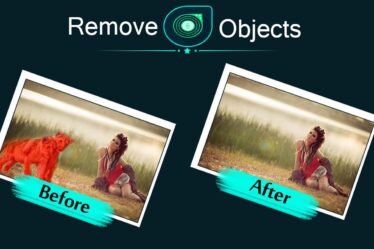Instagram, especially in the past 1-2 years, has evolved into a lively advertising platform. Promotional content saturates feeds, stories, and videos, and the stats prove its effectiveness. The platform enables precise audience targeting, but strict adherence to rules is vital. Even minor deviations can lead to ads being banned and accounts blocked. It’s crucial to grasp the permissible content for promotion. Our analysis delves into the 2023 guidelines and offers practical tips for maneuvering restrictions. The extensive list includes global and locally mandated prohibitions.
When it comes to Instagram, specific content is off-limits: shocking material, misinformation, and socially contentious topics. Moreover, errors, vulgar language, and content violating the Criminal Code are strictly prohibited. Notably, advertising alcohol is legally restricted. However, strategic shifts might enable successful moderation. These examples illustrate potential approaches.
Avoid to Advertise
The primary tool for promoting alcoholic beverages on Instagram involves leveraging associations and stereotypes without directly mentioning alcohol, circumventing the advertising prohibition. Similar strategies apply to tobacco products, with the depiction of specific alternatives in promotional content. Another avenue is aligning with influencers to organically showcase products. However, for advertising in certain categories like medicine s, there are specific limitations on platforms like Facebook and Instagram.
It prohibits advertising drugs and dietary supplements to minors, positioning drugs as a substitute for medical care, and promising 100% effectiveness and no side effects. For adult products, the way they are positioned in advertisements is crucial. While condoms can be promoted as a means of safer sex, focusing on increased sensations is prohibited.
Adult Audience
Advertisements must target adult audiences and avoid naming items or using ambiguous images. Also mandates detailed descriptions of financial products when promoted. Beauty and wellness services face challenges due to Instagram’s strict policies on adult content. Advertisements should maintain extreme neutrality.
Instagram Dislikes
Instagram dislikes “Before and After” posts. Although not explicitly stated in the current advertising rules, statistics indicate this aversion, suggesting it may induce feelings of inferiority. Promising unreliable or quick results is strongly discouraged, as smart algorithms easily detect such claims. When promoting “Beauty”, “Health”, or “Lifestyle” services, maintaining maximum tolerance is vital. Instagram prioritizes user comfort and vehemently opposes any hint of external imperfection.
Microfinance services
So-called microloans can be promoted on Instagram – but only if they are issued for at least 90 days. That is, short-term services of ordinary microfinance organizations do not fall here. Therefore, this segment is suitable mainly for products of classical banks.
Another important rule established by the legislation is that when promoting any financial product, you are required to describe in detail all the conditions for its use – terms, interest rate, and detailed information about the organization. Almost always, such text turns out to be bulky, which creates difficulties when creating posts that are quite small in format on Insta.
Beauty and wellness services
What’s problematic here, you ask? And the fact that in such services the central object becomes a person. Or rather, his body. And Instagram’s neural network and algorithms jealously protect users from any “adult” content. Therefore, you may not pass moderation even if you added only a partially naked body to your post. A bare flat stomach demonstrating the effectiveness of a massage program will most likely be considered prohibited content.
This is where things get ridiculous. You should not sexualize your advertising, but the social network can ban your campaign simply for the appearance of the human body. It is believed that by focusing attention, for example, on the notorious abs, your advertising can hit someone else’s self-esteem. The thin waist, wrapped in measuring tape, ends up there too.
Online dating
When promoting such services, you must again remember the social network’s zealous attitude towards any “adult” content. Therefore, you will initially have to obtain written permission from Facebook. It is issued based on the results of an inspection – as thorough as possible – by service representatives.
Rules for Targeted Advertising
The rules for targeted advertising with real Instagram followers are very strict to ensure that the rights and interests of children are not violated. In particular, the social network will not allow a campaign that in any way could develop an inferiority complex. And it doesn’t matter whether the child is participating as a model or whether you are targeting a child audience.
For some brands, actively baiting a competitor is a very powerful marketing tool. There are plenty of examples: Coca-Cola and Pepsi, BMW and Audi, BurgerKing, and McDonald’s – this is generally a textbook example of brand confrontation. And on Instagram, such “squabbles with posts” are also possible – but they must be extremely careful. And the comparison should not be direct and contain unproven statements:
Conclusion
You must follow the rules for conducting advertising campaigns on Instagram following or facebook likes extremely responsibly. Not only do they have many points and conditions, but also compliance with each of them is carefully monitored. And successfully passing moderation does not mean that there will no longer be complaints against you. The site administration directly states that it reserves the right to block any advertising campaign at any time without giving reasons.



